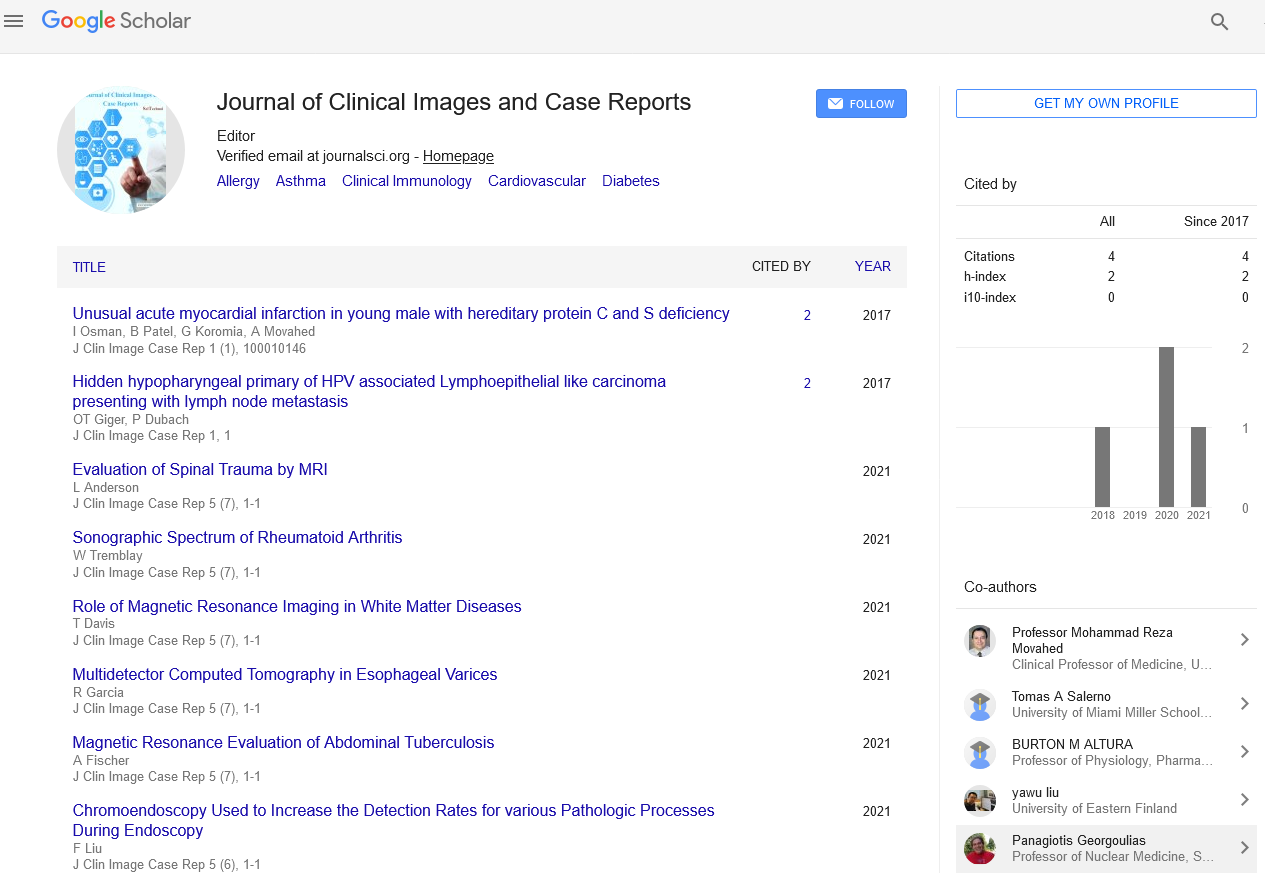Perspective, J Clin Image Case Rep Vol: 7 Issue: 4
Comorbidities and Multimorbidity of Hypertension: Complexities and Remedies
Bernabe Jespersen*
1Division of Tropical and Humanitarian Medicine, Geneva University Hospitals & University of Geneva, Geneva, Switzerland
*Corresponding Author: Bernabe Jespersen,
Division of Tropical and Humanitarian Medicine, Geneva
University Hospitals & University of Geneva, Geneva, Switzerland
E-mail: jespersenbern23@gmail.com
Received date: 15 July, 2023, Manuscript No. CICR-23-113221;
Editor assigned date: 17 July, 2023, PreQC No. CICR-23-113221 (PQ);
Reviewed date: 31 July, 2023, QC No. CICR-23-113221;
Revised date: 07 August, 2023, Manuscript No. CICR-23-113221 (R);
Published date: 17 August, 2023, DOI: 10.4172/CICR.1000261
Citation: Jespersen B (2023) Comorbidities and Multimorbidity of Hypertension: Complexities and Remedies. J Clin Image Case Rep 7:4.
Abstract
Hypertension, commonly known as high blood pressure, is a chronic medical condition affecting millions of people worldwide. However, hypertension rarely exists in isolation. It often coexists with other chronic health conditions, a phenomenon known as comorbidity, and can also lead to the development of multiple chronic conditions in the same individual, known as multimorbidity.
Description
Hypertension, commonly known as high blood pressure, is a chronic medical condition affecting millions of people worldwide. However, hypertension rarely exists in isolation. It often coexists with other chronic health conditions, a phenomenon known as comorbidity, and can also lead to the development of multiple chronic conditions in the same individual, known as multimorbidity. This article explores the intricate relationship between hypertension and comorbidities, shedding light on the challenges and strategies for managing this complex web of health concerns.
Understanding hypertension
Hypertension is characterized by elevated blood pressure levels, placing increased stress on the arteries and the heart. It is a significant risk factor for heart disease, stroke, and other vascular complications. While hypertension can occur independently, it frequently accompanies a variety of comorbidities and contributes to the development of multiple chronic conditions.
Common comorbidities of hypertension
Diabetes: Hypertension and diabetes often coexist, forming a dangerous combination that increases the risk of cardiovascular complications, including heart attack and stroke.
Obesity: Obesity is closely linked to hypertension, and excess body weight can exacerbate high blood pressure. Managing both conditions is crucial for overall health.
Hyperlipidemia: High cholesterol levels frequently accompany hypertension, further elevating the risk of atherosclerosis and cardiovascular events.
Chronic Kidney Disease (CKD): Hypertension is a leading cause of CKD, and CKD, in turn, can worsen blood pressure control, creating a challenging cycle of disease progression.
Metabolic syndrome: Metabolic syndrome is a cluster of conditions, including hypertension, obesity, high blood sugar, and high cholesterol, which collectively raise the risk of heart disease and type 2 diabetes.
Multimorbidity in hypertension
Hypertensive individuals are at an increased risk of developing multiple chronic conditions simultaneously. Multimorbidity in hypertension can include a range of health issues, such as:
Cardiovascular diseases: Heart diseases like coronary artery disease, heart failure, and arrhythmias frequently coexist with hypertension, amplifying the risk of adverse cardiovascular events.
Stroke: Hypertension is a leading cause of stroke, and individuals with high blood pressure are at a higher risk of both ischemic and hemorrhagic strokes.
Mental health disorders: Anxiety, depression, and cognitive decline are often seen in hypertensive individuals, emphasizing the importance of holistic care.
Respiratory conditions: Chronic respiratory conditions like Chronic Obstructive Pulmonary Disease (COPD) can complicate hypertension management.
Managing comorbidities and multimorbidity
Comprehensive assessment: A thorough evaluation of a patient's medical history, risk factors, and current health status is essential to identify comorbidities and multimorbidity.
Team-based care: Collaborative care involving healthcare professionals from various specialties is crucial for managing complex multimorbid patients.
Lifestyle modifications: Lifestyle changes, including dietary modifications, regular physical activity, and stress reduction, can help manage hypertension and its comorbidities.
Medication management: Appropriate medication management, often involving multiple medications, is essential for controlling blood pressure and addressing comorbid conditions.
Patient education: Empowering patients with knowledge about their conditions and self-management strategies is vital for successful long-term management.
Conclusion
Hypertension is not an isolated condition but is intricately connected to a web of comorbidities and multimorbidity, significantly impacting the health and well-being of individuals. Effective management of hypertension necessitates a comprehensive and patient-centered approach that addresses all relevant health concerns. By understanding these complex relationships and adopting a holistic approach to care, healthcare providers can improve the quality of life and outcomes for individuals living with hypertension and its associated comorbidities.
 Spanish
Spanish  Chinese
Chinese  Russian
Russian  German
German  French
French  Japanese
Japanese  Portuguese
Portuguese  Hindi
Hindi 